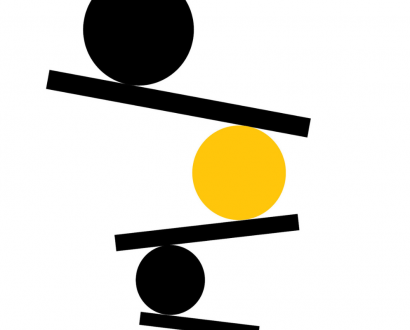In my most recent article, I outlined a number of ways in which to avoid work’s hidden burnout crisis. One of the contributing factors to increased burnout is that despite working more, we are achieving less.
As a result of the pandemic, workers spend more time on unnecessary meetings, work longer hours each day and finish later, and miss 25 per cent of deadlines. As Brigid Schulte says, “Life feels like time confetti – one big, chaotic burst of exploding slivers, bits and scraps.”
In this article, I’ll share solutions that will make it easier to achieve more, rather than less, and to feel the satisfaction of doing what matters most. Core to that is how you manage your attention. If you manage your attention well, you can focus on what matters most, do higher-quality work and more easily meet deadlines, all of which guards against burnout.
Paying attention: your most valuable leadership resource
There are five different forms of attention, according to Goleman and Davidson:
- Selective attention – focusing on just one thing at a time
- Vigilance – maintaining attention over time
- Allocating attention – noticing shifts in attention
- Allocating attention – noticing shifts in attention
- Goal focus – keeping a specific task in focus, despite distractions
- Meta-awareness – keeping track of your awareness
All of these forms of attention are important for doing focused, high-quality work. Meta-awareness is the most helpful because it allows you to track yourself, pay attention to attention, and refocus on what is important. Mindfulness is the most effective foundation technique for increasing meta-awareness. It’s the easiest – yet not at all easy – practice to reduce the experience of time confetti.
Managing your attention to optimise output success
Notice what form of attention you are engaging right now. Use brief mindfulness practices to allow you to engage meta-awareness. Are you doing what matters?
Remind yourself of what is most important to you. Why do you do what you do? What are your intentions? What is most important to do right now?
There’s enormous value in routine. Habits release the conscious mind from mundane decisions and contradictions that sap energy. As Wendy Wood says in her book Good Habits, Bad Habits, successful change is not marked by personal fortitude or determination, but by being clear about your goals, taking simple steps, organising the context around you and encouraging enjoyable actions. That makes good habits stick.
Around 43 per cent of what you do that is habitual. Identify which habits help, and which ones hold you back. Create goals to change the habits that don’t serve you well.
Once formed, habits take little effort. The more of your day that is powered by habits that align with your purpose and intentions, the more attention you have available for important work.
Good deep work habits include being crystal-clear about the work that is most important to you. Create your deep work rituals – where, when and how – schedule deep work into your day, and measure how much you do.
Structured check-ins help you get off to a good start, checkpoints during the day help you stay focused and motivated, and check-outs help you detach from work at the end of the day. A great end-of-day check-out is to briefly review your progress: what did I achieve today, what got in the way of progress, and what do I need to adjust tomorrow to do what matters?
Use a ‘special’ notebook or arrange your desk in a particular way. Rituals induce a sense of calm, stop distraction and give small actions symbolic meaning – such as ‘getting started’ – that makes them more powerful.
When you actively manage your attention, and your daily habits and routines are aligned with your purpose and goals, you reduce cognitive load, which frees up your best resources to work on what matters most.
Dr. Karen Morley is an Executive Coach, an authority on leadership coaching, and a thought leader on gender and inclusion.
Read next: Dangerous money mistakes time-poor CEOs always make







